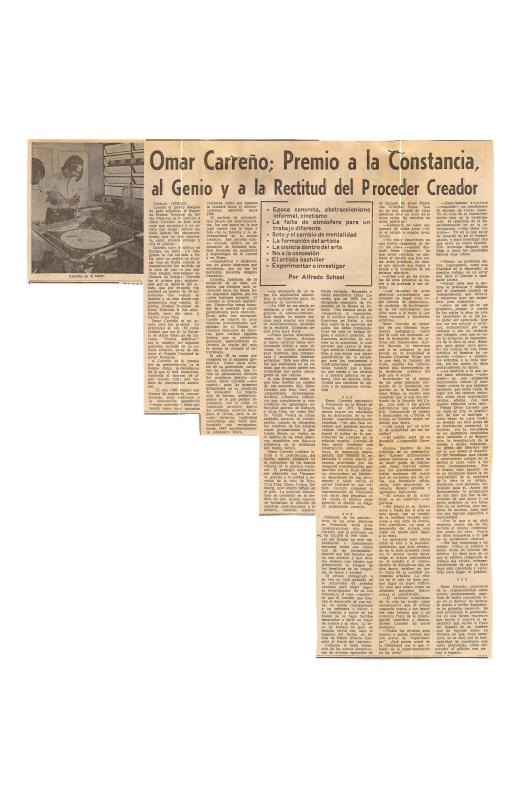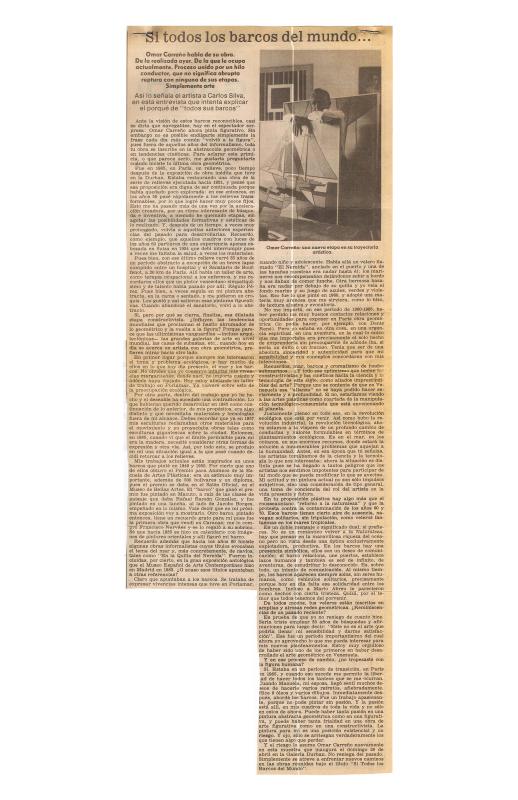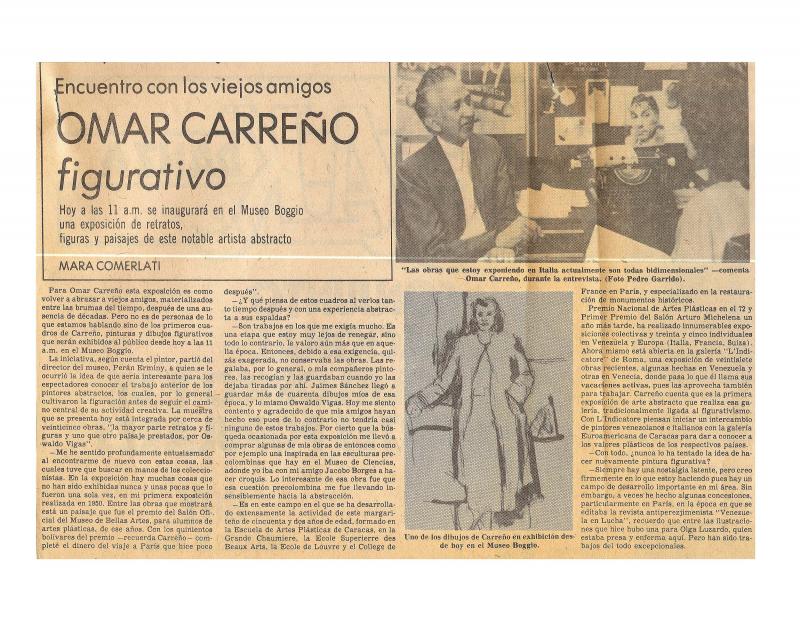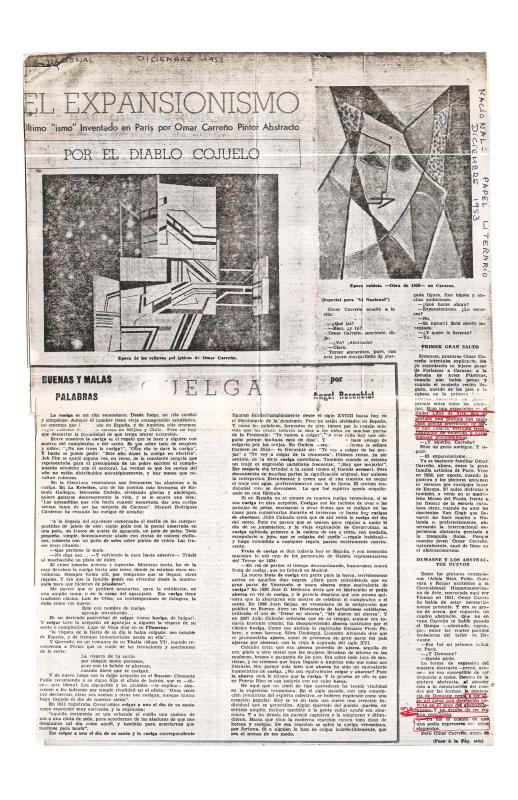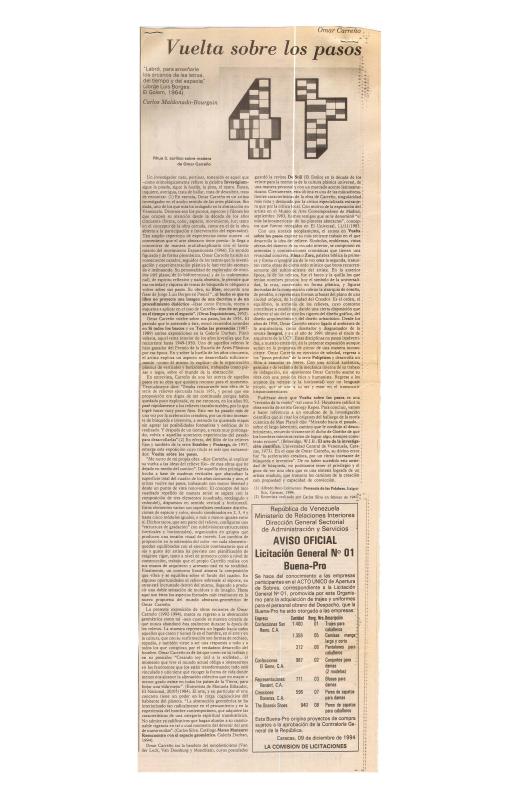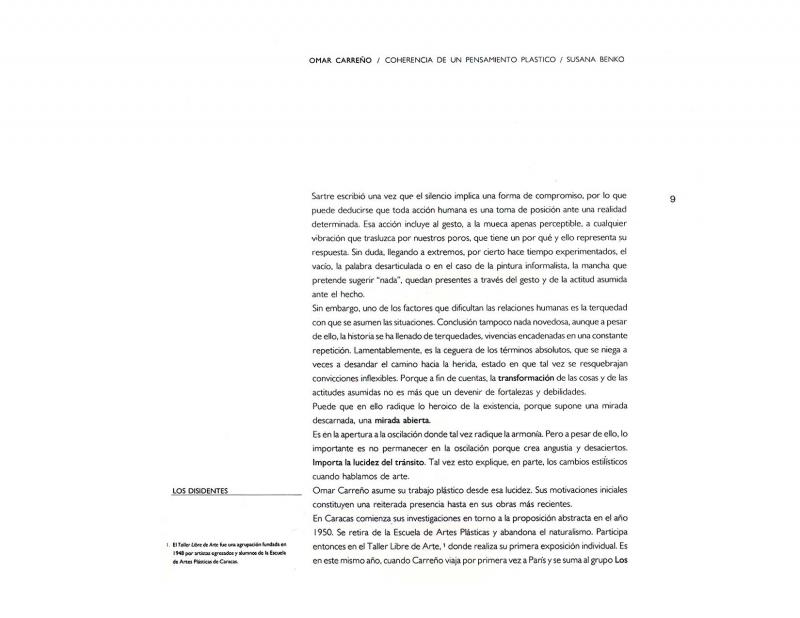In 1965, the Venezuelan painter and sculptor Omar Carreño (1927?2013) presented his solo exhibition El Nereida at the Museo de Bellas Artes in Caracas, which included a series of paintings in the abstract language of Informalism. This phase was a parenthetical episode in Carreño’s career after about sixteen years producing geometric abstract works. He wanted to go beyond traditional media and supports by creating changeable projects and working on the beginnings of the “Expansionist” movement that he founded in 1967. From 1960 to 1963, however, he began to use an informal language to address the subject of the sea and El Nereida, a boat that had run aground on the shore of the coastal region where he spent his childhood. In his article, the poet, draftsman, and critic Juan Calzadilla (b. 1931) sheds light on Informalism at a time when the validity of Constructivist art was being challenged. He also describes Informalism as an emotional kind of “confessional painting,” agreeing with Carreño’s approach as a way to evoke recollections of his youth on Margarita Island. After the El Nereida exhibition, Carreño came back to geometric abstraction; he published his Expansionist manifestos, and it was not until the mid-1980s that he returned to the subject of the sea in a second parenthetical phase during which he produced the figurative series Si todos los barcos del mundo.
[To read more about this artist’s work, see in the ICAA digital archive the interviews by Alfredo Schael “Omar Carreño. Premio a la constancia, al genio y a la rectitud del proceder creador” (doc. no. 1157337); by Carlos Silva “Si todos los barcos del mundo…” (doc. no. 1157369); by Mara Comerlati “Omar Carreño, figurativo” (doc. no. 1157353); by Antonio Muiño, under the alias of El Diablo Cojuelo, “El expansionismo. Último ‘ismo’ inventado en París por Omar Carreño, pintor abstracto” (doc. no. 1157320); by Carlos Maldonado Bourgoin “Vuelta sobre los pasos” (doc. no. 1157385); and the article by Susana Benko “Omar Carreño. Coherencia de un pensamiento plástico” (doc. no. 1157304)].

